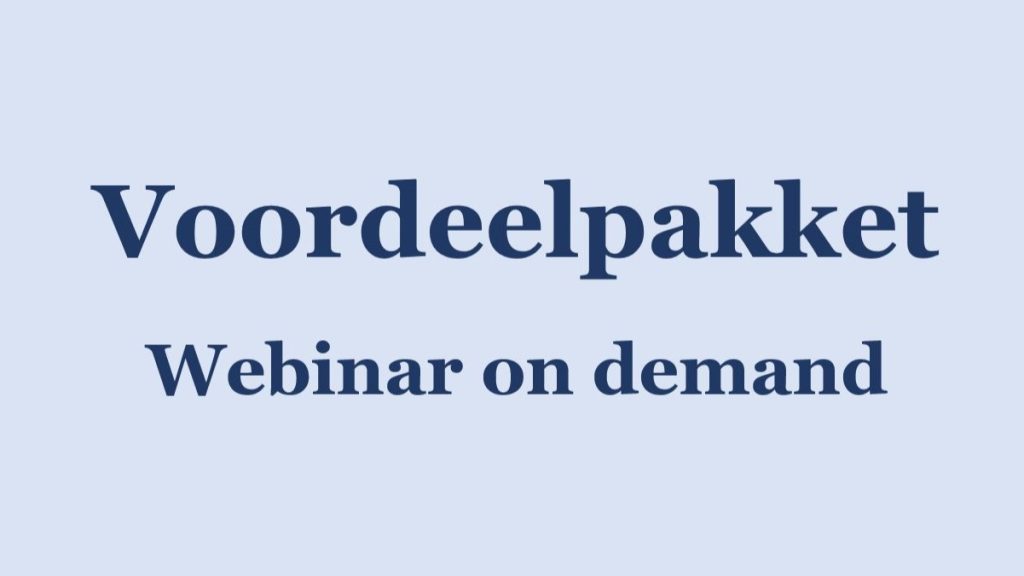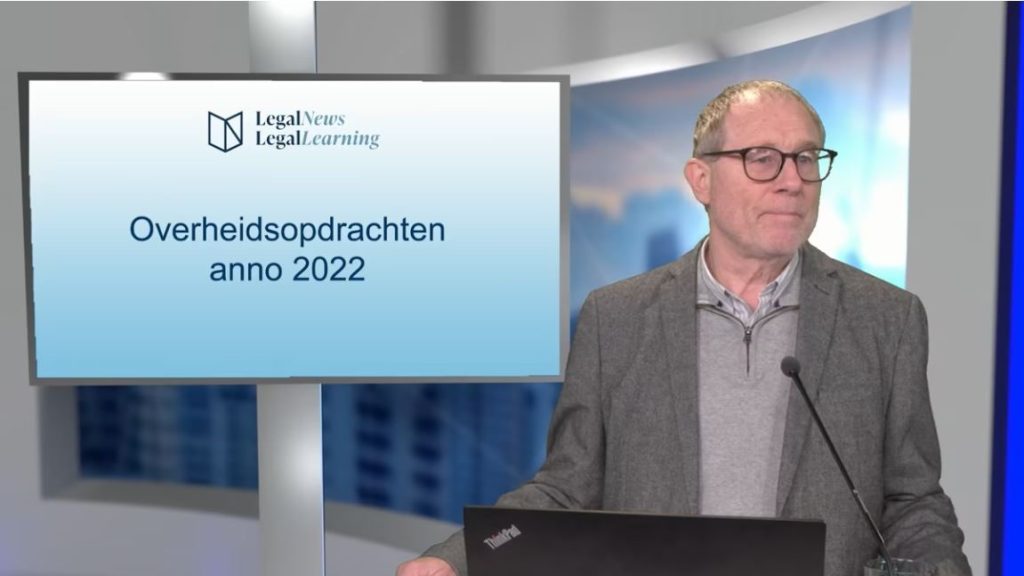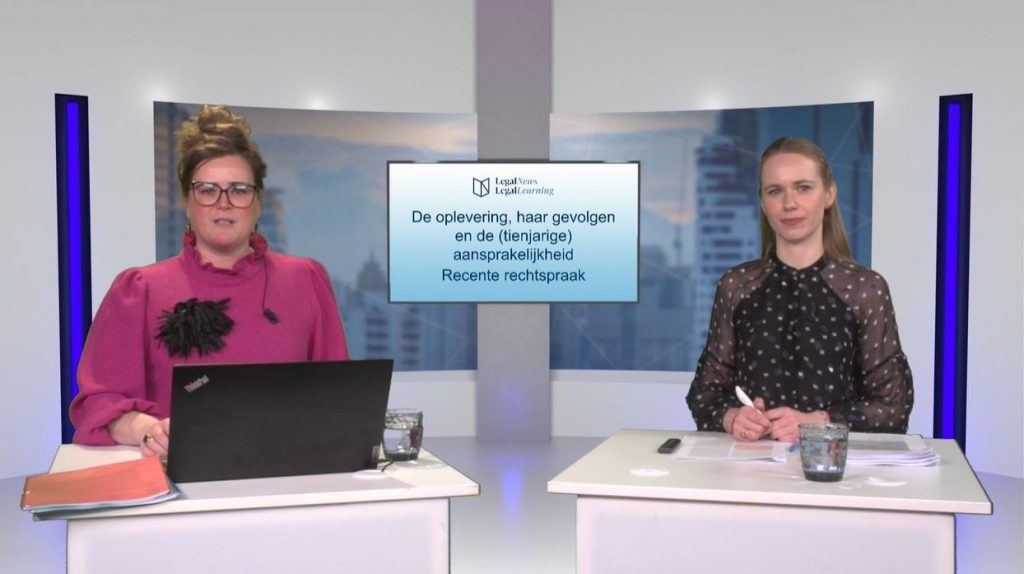Actualia Overheidsopdrachten
2023/2024
Dhr. Constant De Koninck (Rekenhof) en mr. Peter Teerlinck (& De Bandt)
Webinar op donderdag 5 december 2024
Vastgoedtransacties
door én met administratieve overheden:
overheidsopdracht of uitgesloten vastgoeddienst?
Dhr. Constant De Koninck (Rekenhof)
Webinar op donderdag 13 juni 2024
Recente wetgevende ontwikkelingen
met impact op de bouwsector
Prof. dr. Kristof Uytterhoeven (Caluwaerts Uytterhoeven)
Webinar op dinsdag 27 augustus 2024
Public Procurement in case of a pandemic (K Law)
Author: Karen De Braekeleer (K Law)
Publication date: 25/03/2020
What if you are a service provider to public authorities, but your employee who normally performs the public procurement contract has to be quarantined? What if your supply chain has been interrupted and prices for a necessary product have rocketed? The pandemic character of a virus, the possible closing of the borders and the consequences for the import of specific products and services might have a serious impact on the performance of public procurements contracts.
1. The revision of the public procurement contract
In theory, public procurement contracts will generally contain review clauses for circumstances that could not be reasonably foreseen when submitting the tender. According to article 38/9 of the Royal Decree of 14 January 2013, these clauses entitle the contractor to request an extension of the execution period or, in the event of a significant disadvantage, an alternative form of revision of the public procurement contract or the actual termination of the public procurement contract.
No major disadvantage needs to be demonstrated in order to obtain an extension of the execution period. However, for an alternative revision, such as a financial revision of the public procurement contract, a major disadvantage needs to be proven:
- For works contracts, a financial disadvantage arises when the disadvantage amounts to at least 2.5 % of the original tender sum. Where a contract is awarded on the basis of a financial award criterion that is taken into account for at least 50 % of the points, the financial disadvantage is indicated in absolute terms in Article 38/9:
- €175.000 for a public procurement with an initial contract value of more than €7.500.000 and less than or equal to €15.000.000;
- €225.000 for a public procurement with an initial contract value of more than €15.000.000 and less than or equal to €30.000.000;
- €300.000 for contracts with an initial contract value of more than €30.000.000.
- For supply contracts and most of the service contracts, a loss of at least 15 % of the original tender sum must be taken into account.
Additionally, the contractor can only claim a revision if they can provide evidence of the fact that:
- The contractual balance between the obligations of the public authority – i.e. the payment of the price – and the contractor is upset. This encompasses both so-called force majeure and “hardship” situations. Ergo the contractor’s staff must stay in quarantine and the execution of the public procurement contract is impossible or extremely difficult, the supply chain is interrupted and the necessary product cannot be delivered in time or the price of the necessary product is all of a sudden extremely high;
- The unforeseeable circumstance for which the contractor may request a revision of the public procurement contract could not have reasonably been foreseen when the tender was submitted. The contractor should consequently check the date of the tender and the date on which it was clear that performance of the contract was impossible or at least extremely difficult;
- The unforeseen circumstance could not have reasonably been avoided. The contractor should exert reasonable efforts to perform the contract under the agreed conditions, for example by trying to find a substitute for a sick staff member;
- The unforeseeable consequences cannot reasonably be remedied by the contractor despite the fact that they have taken all the necessary measures to end them.
2. Written notice (time sensitive!)
Bear in mind that the contractor is obliged to observe strict time limits when submitting their claim for revision, under penalty of being null and void. Article 38/15 of the Royal Decree of 14 January 2013 obliges the contractor to issue a written notice invoking these circumstances and its consequences within a period of 30 days after they occurred. This obligation remains applicable even when the authority is aware of the specific circumstance.
3. Price adjustment
The impact of the coronavirus crisis on price adjustment formulas is something that needs to be closely monitored as well. Fierce price fluctuations on the commodity market may result in disproportionate decreases in price adjustment formulas. Also in this context, a financial compensation could be requested on the basis of, and within the confines of, Article 38/9 or if the price adjustment formula significantly deviates from the actual cost structure, on the basis of a violation of Article 10 of the Public Procurement Act juncto Article 38/7 of the Royal Decree of 14 January 2013.
4. Suspension of the contract by the contracting authority
Finally, it may be possible that a service provider or contractor is still able and willing to execute the contract as planned, but the contracting authority is not willing to continue the execution. An example would be a hospital that no longer wants external contractors that are not absolutely necessary on their premises, in order to guarantee the safety of their patients, their staff and also the contractors themselves.
The contracting authority could in that case suspend the execution of the contract. In principle it is not obliged to pay any damages to the contractor, if the suspension is the result of circumstances for which the contracting authority is not accountable and if the contracting authority believes the execution of the contract cannot proceed without objection (Article 38/12 of the Royal Decree of 14 January 2013). This would be the case for the so-called force majeure and “hardship” situations, for example when a contracting authority needs to take urgent measures and reorganize in case of a pandemic.
» Bekijk alle artikels: Overheid & Aanbesteding
















